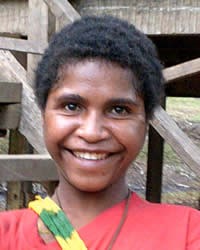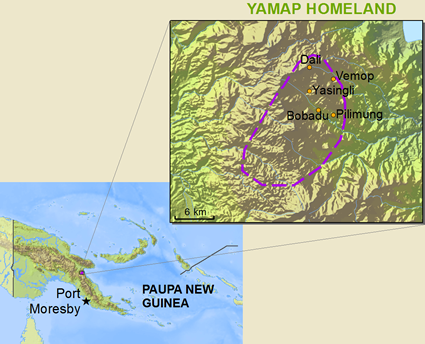Most Yamap people live in the villages of their homeland, although there are clusters of Yamap speakers in cities as well. Most people keep small gardens where they grow coffee and betel nut, but transportation costs to market leave little profit. For cash income, they usually depend on relatives who are working in urban areas and sending money home.
Protestant missionaries evangelized the Huon Gulf between 1920 and 1950. Today, most residents of the area's small language groups consider themselves Christians and belong to a denominational church.
But lifestyles have changed little. Most still fear the spirits and curses from their animistic past. People blame ghosts of the dead, sorcery or judgment for sin when someone dies unexpectedly.
Because the Good News is not in their language, it has not penetrated their hearts or their culture. They need to understand the power of God and the authority of Jesus. They need the truth in their own language in order to relate to God on a personal level and to recognize the life and power of His Spirit within them.
Church leaders long to see their members truly free from fear of evil spirits, curses and spells. Although Yamap is spoken by a small population, the people who speak them are individually precious to God.
Scripture Prayers for the Yamap in Papua New Guinea.
| Profile Source: Anonymous |











